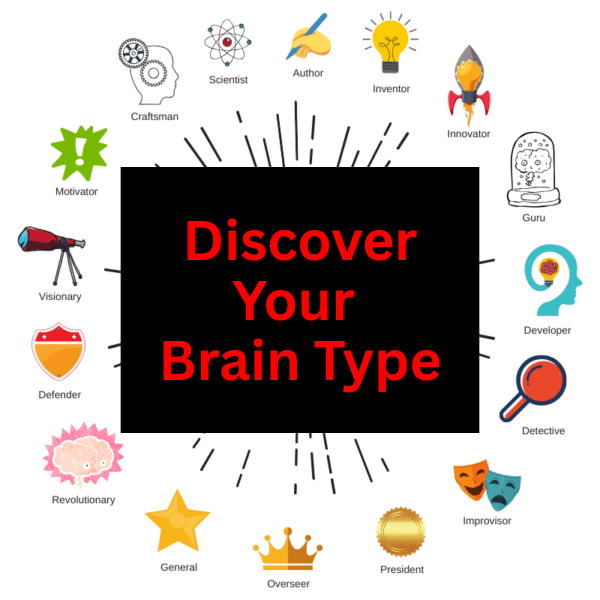 I got this message in an email from Michael Lovitch, Co founder of the Hypnosis Network . I found it so interesting, I just had to post it. I have told people over and over that willpower isn’t a matter of personal strength, but more an issue of how much re-wiring needs to be done in their brain. Michael offers a great explanation on how willpower plays into how the brain works.
I got this message in an email from Michael Lovitch, Co founder of the Hypnosis Network . I found it so interesting, I just had to post it. I have told people over and over that willpower isn’t a matter of personal strength, but more an issue of how much re-wiring needs to be done in their brain. Michael offers a great explanation on how willpower plays into how the brain works.
Will Power is not a “Character” Issue
Most of us assume that a lack of will power is a personality defect, and that if we had a better constitution we would meet our resolutions (stop overeating, stop drinking too much, quit smoking, get more done, create and follow a budget, etc…)
But the research is now clear that our brains simply aren’t designed for willpower – because willpower is a limited resource.
A series of experiments has clearly demonstrated that the part of the brain responsible for self control, the prefrontal cortex, simply can’t maintain the act of self control for an extended period of time.
Baba Shiv, a marketing Professor at Stanford University, conducted a really interesting experiment that I think really drives the point home:
Cake or Salad?
Baba Shiv’s team assembled two groups. Group One was tasked with remembering a two digit number and Group Two was tasked with remembering a seven digit number (obviously a more difficult task).
Each subject was then led into another room and given the choice of having either a slice of chocolate cake or a bowl of fruit salad.
Here is the crazy part: The seven digit group members were twice as likely to eat the cake than the two digit group!!!
The extra five digits that Group Two had to remember overloaded the prefrontal cortex, the part of the brain responsible for self control, making them choose the fattening cake over the healthier fruit.
Another study performed by Dr. Mark Muraven, a Professor at the University of Albany, demonstrates this effect once again.
Drinking, Driving, and Self Control
Muraven asked subjects to “not” think about a white elephant for five minutes while writing down their thoughts (this is actually pretty hard to do). A control group just did some simple math problems.
He then had the two groups do a beer taste test – but he had warned them that their next task would involve driving!
True to the theory, the white elephant group drank significantly more beer than the control group. The mental task simply ate up their capacity for self control.
The point is that – 88% of Resolutions Fail Because Self Control Takes Energy
These are simple tests, but think about it: You go through a lot more stress and multi-tasking than any of these experiments can replicate.
So are we doomed?
Well, no we aren’t.
How to Keep a Resolution…
First, if you are going to choose a resolution or a goal, just choose one!!!
Don’t try to lose weight, stop smoking, or quit biting your nails all at once.
Since inhibition takes up energy, focus on one thing at a time.
The second piece of advice has something to do with the work of Walter Mischel at Columbia University.
Mischel’s studies have shown that people who can delay gratification don’t necessarily have more will power, but instead think of better ways to get tempting thoughts out of their minds!
So, the second piece of advice is to learn how to get creative and manage your attention.
Instead of “not thinking” about the temptation – either distract yourself or think about it in another way.
What Michael is really suggesting here is finding ways to break your patterns. I talk about this often, and even teach it in my brain training workshops. The next workshop is next month, so stay tuned for more details through this page: http://xgym.com/xtras/brain-training/!
It is also important to understand this concept applies to everyday life as well. For instance, have you ever had a really “rough day” that drained you mentally, and then allowed you to self talk your way into justifying a “reward” of ice cream or give into some comfort food that evening? This is another perfect example of your prefrontal cortex being overloaded, causing you to have poor judgment because there is no energy left for self control!
Is there a solution? You bet! The first step is to recognize and acknowledge that is what is happening. The second step is to de-stress and clear your mind. I do this with meditation. I simply sit or lie down, close my eyes, drop my shoulders, relax my neck, and start breathing slowing in through my nose and out through my mouth. Every time I exhale I whisper a word from the apostle’s Paul’s favorite list of things to think about: True, Noble, Right, Pure, Lovely, Admirable, Excellent, and Praiseworthy.
When I say these words, my subconscious brain starts to think about things that fall into those categories. By the time I am done, I have broken my stress cycle, and have completely changed the state I am in. My prefrontal cortex is restored and renewed, giving me all the energy I need to make proper decisions and judgment. This routine only requires about 2 minutes to become a completely different person! It truly is amazing.
Are there other ways to free up resources for your prefrontal cortex? Of course. There are dozens that I know of and teach to X Gym members. I also hold workshops on the topic, so stay tuned through our free newsletter on when and where those are! Just go to xgym.com to sign up. You can also look up archived copies for past brain training techniques and to catch up on some of the latest in scientific research on exercise and nutrition.
Lastly, here’s my opinion on hypnosis: The right kind really does work! I’m not talking about stage hypnosis here where people go into altered states and cluck like chickens. I’m referring to conscious state brain training through properly constructed suggestions and visualization techniques. You don’t have to hire a hypnotist either. The hypnosis network has some pretty good CD’s (I’m not affiliated with them by the way, so this is unsolicited), as well as some other sources, various sites and even iPhone apps. How do you find the right one? That’s just a preference thing. Try some out and go with the ones you feel are the most effective for you.









